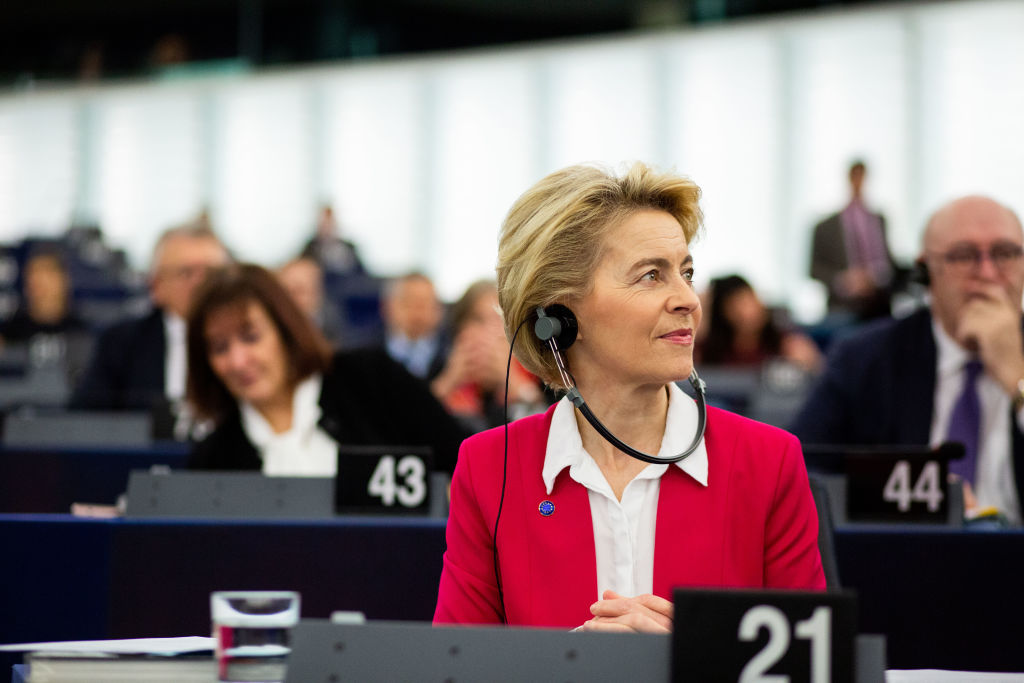In a bold assertion of autonomy and ambition, EU President Ursula von der Leyen has set the stage for what could be a transformative period for Europe as it navigates the complex waters of digital governance and taxation. With a commitment to redirect a significant portion of its COVID-19 recovery funds towards digital innovation, Europe is poised to propel itself into a new technological era, prioritizing digital sovereignty, connectivity, and enhanced regulatory frameworks.
Digital Taxation: A Path Towards Fairness
In her recent address to the European Parliament, von der Leyen made it clear that Europe is prepared to take definitive action on digital taxation if global negotiations fail to yield a satisfactory outcome. She emphasized, “Should an agreement fall short of a fair tax system that provides long-term sustainable revenues, Europe will come forward with a proposal early next year.” This statement underscores a growing dissatisfaction with the current state of international tax agreements, especially concerning tech giants who often exploit loopholes for economic benefits.
The push for a new digital tax isn’t merely about revenue generation; it is about establishing a fairer economic landscape where digital companies contribute proportionately to the economies they operate within. Such a taxation framework could redefine how digital commerce is conducted globally, with Europe at the forefront of leading this charge.
Investment in Digital Infrastructure: The Heart of Europe’s Recovery
Von der Leyen’s vision is grounded in tangible investments to create what she calls Europe’s “Digital Decade.” With €150 billion earmarked for digital initiatives from the €750 billion COVID-19 recovery fund, the focus lies heavily on revitalizing the digital infrastructure across the continent. Investments will be aimed at:
- Broadband Expansion: Ensuring that even the most remote villages have access to high-speed internet.
- European Cloud Development: Establishing a federated data structure through projects like GaiaX, ensuring secure and efficient data storage and sharing.
- Artificial Intelligence Innovations: Exploring applications in agriculture, healthcare, and autonomous driving while emphasizing ethical guidelines for AI usage.
These investments not only promise better connectivity but also aim to foster innovation among tech startups and established companies alike, positioning Europe as a formidable player in the global tech arena.
Creating a Secure Digital Identity
With increasing concerns about data privacy and user security, von der Leyen has proposed the development of a secure European e-identity. This initiative seeks to empower citizens by giving them control over their personal data. Through a unified digital identity mechanism, users would have the ability to manage how their information is utilized across digital platforms, promoting transparency in transactions with apps and websites.
This initiative could serve as a leap towards building trust in digital economies, where users can engage confidently knowing they have a robust framework backing their personal data rights.
Sustainability Meets Innovation
In tandem with digital investments, the EU has not lost sight of environmental sustainability. Von der Leyen announced ambitious plans aimed at reducing emissions and enhancing green practices. With 37% of the recovery fund directed towards green initiatives, the EU intends to merge its digital strategy with ecological responsibility. This cohesive approach will address both economic growth and climate change—an intersection that is increasingly becoming a critical focal point worldwide.
Throughout her address, von der Leyen reiterated the need for a circular economy, emphasizing innovation in construction and materials, and the role of AI in achieving these goals. The idea of turning buildings into carbon sinks rather than sources resonates not just as a strategy for emission reduction but as a commitment to a healthier planet.
Moving Forward: The Road Ahead
As Europe embarks on these ambitious plans for revamping its digital landscape, the pathway won’t be devoid of challenges. The extent of cooperation among member states, alignment of policies, and public buy-in will be pivotal in ensuring the success of these initiatives. Nevertheless, the momentum is palpable, and the commitment to leading in digital standards is clear.
The call for a “new European Bauhaus,” where aesthetics and sustainability converge to form a modern cultural identity, adds an exciting layer to this initiative. It represents not just a shift in economic paradigms but also an evolution in how societies will interact with digital technologies and the environment.
Conclusion
In conclusion, Europe stands at the cusp of a digital revolution, exemplified by its proactive stance on tax reform, infrastructural investments, and the quest for data sovereignty. Under the robust leadership of Ursula von der Leyen, there is a drive to not just participate in the evolving global landscape but to lead it. By bridging the digital and environmental realms, Europe aims to create a sustainable and innovative future.
For more insights, updates, or to collaborate on AI development projects, stay connected with fxis.ai.
At fxis.ai, we believe that such advancements are crucial for the future of AI, as they enable more comprehensive and effective solutions. Our team is continually exploring new methodologies to push the envelope in artificial intelligence, ensuring that our clients benefit from the latest technological innovations.

